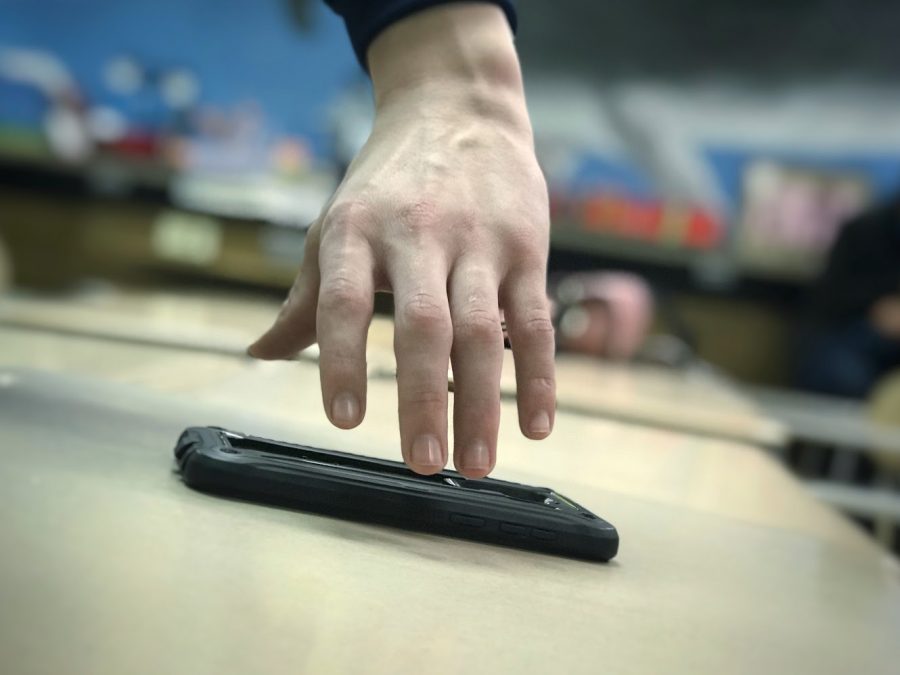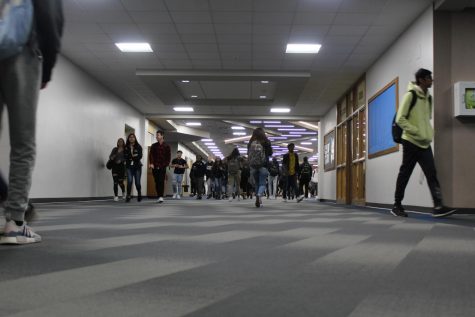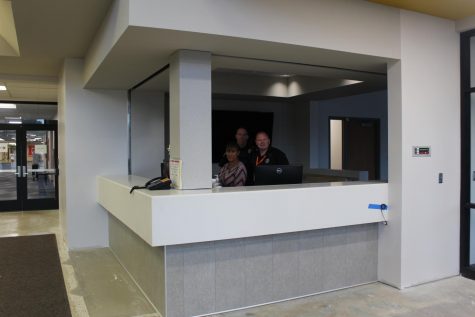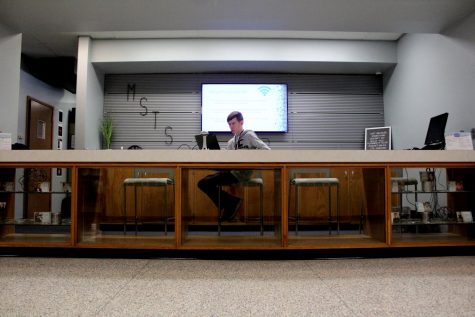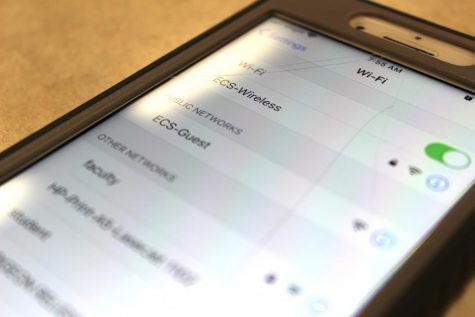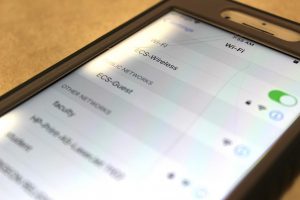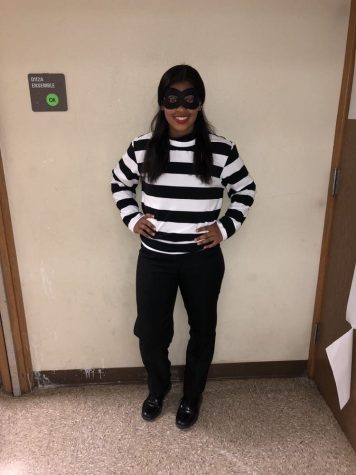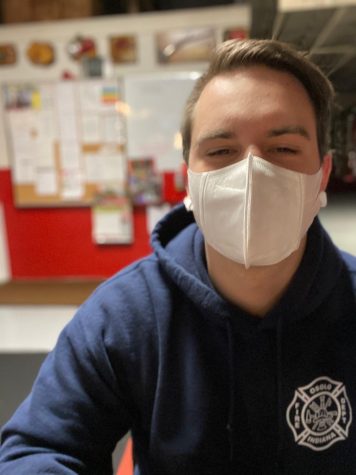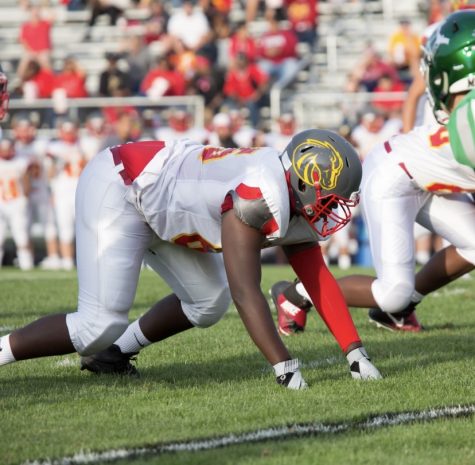How to keep personal devices safe at school
Although theft occurs at Elkhart Memorial, more often than not, stolen or lost phones are returned to their owners.
February 5, 2020
Since schools entered the digital age, students are seemingly never without an electronic device of some kind: from phones and laptops to the school-issued iPads.
With students now taking these devices with them everywhere they go, there is an increased risk of some of their most valuable possessions getting stolen.
Never fear! EMHS is in the hands of one of Elkhart’s finest: Officer of 19 years, Robert Presswood of the Elkhart Police Department.
Since 2018, Presswood has been the Elkhart Memorial School Resource Officer (SRO) where he acts as a resource for students, manages building security, and assists in the administration of discipline.
Being responsible for handling criminal activity at the school, Officer Presswood has seen his fair share of theft. However, he says that it’s not all that common at EMHS.
According to Presswood, larger numbers of theft reports come in short waves with long periods of little to no activity.
“It depends,” Presswood explained. “In one week I’ll have three and then I won’t have any for a month, so it kind of goes in spurts.”
Officer Presswood says that around 90% of all thefts in the school occur in PE classes. The reason: students not locking up their belongings in the lockers they are provided.
“Although we have 177 cameras, we don’t have them in locker rooms, for obvious reasons,” Presswood explained. “So if kids put their phones in their backpack in an unlocked locker, well then someone who’s looking to take it finds it, then that’s how we end up with a stolen phone.”
When a phone is reported stolen, the security team looks at the camera footage from the timeframe that the theft took place.
“If you left your cell phone in the locker room at 11:00 and then, at 11:15, you found it missing, we’re able to put that timetable together and, although we don’t have cameras inside the locker rooms, we have cameras outside the doors so we can determine who’s come in and out and I’m able to talk to them.”
Once they narrow the suspect pool down to a few or even just one person, Presswood meets with the student to inform them of the evidence against them and to give them an opportunity to return the stolen property.
Most take that opportunity. If they don’t immediately hand it over, the device is often placed “anonymously” in the lost and found.
If the suspect cooperates, they are typically let off with only the school’s punishment: 3-5 days of suspension. If they don’t, charges are filed and the rest is up to a judge.
According to Presswood, the latter rarely happens.
Apart from PE, another place phones are lost is in the cafeteria.
“We’ve got multiple cameras in the cafeteria and we can zoom in on stuff,” Presswood said. “So if you’re in the cafeteria and something like that happens, report it immediately.”
The sooner it is reported, the less footage they have to go through and the better chance there is of finding the thief and recovering the stolen property.
However, the reason behind most lost phones in the cafeteria isn’t actually theft.
“More often than anything,” Presswood said. “Kids will forget [their phones] at lunch and we’ve had kids that have thrown them away at lunch— like, have them on their tray and dump their tray— and go to class and realize, ‘Oh crap! My phone’s in there!’ and literally have to go dig it out of the trash.”
Another less common situation is when a student leaves their phone on their desk and it goes missing in class.
In those cases, if the victim notices before class is over and no one has left, it’s obvious that the thief is someone still in the room, so Officer Presswood talks to each student one by one in a separate room.
The last time Presswood had to do that was in a foods class where the phone was put inside a microwave as a joke.
“But the kid was scared so didn’t want to tell me he did that,” an amused Presswood recounted. “But once I laid it all out, he was like, ‘Ok, it was a joke, it’s in the microwave’ and I looked in the microwave and there it was. So it wasn’t really as much of a theft as it was a joke.”
More often than not, Officer Presswood is able to see stolen or lost phones returned to their rightful owners.
That’s not to say there haven’t been cases where the property was never recovered.
“Any time that I haven’t gotten it back,” Presswood said. “It’s because it’s been over a long course of time that it was reported.”
He explains that, if a student realizes that their phone is missing and they wait to report it for an hour, that leaves a lot of time for something to happen to the phone
“The sooner it’s reported missing or stolen, the better chance we have of getting it back.”
Overall, Officer Presswood’s tips to keep your personal devices safe are:
- Lock up your belongings when you’re in P.E.
- Keep an eye on your belongings
- Be careful with PopSockets— according to him, they can get caught on pockets, keep the phone from going all the way in, and cause it to fall out of the pocket without students realizing.
If you do experience theft, the best thing to do is report it to a teacher or other staff member immediately. The sooner it is reported, the better chance you have of getting your stuff back.







